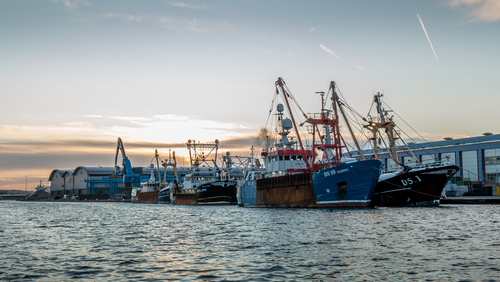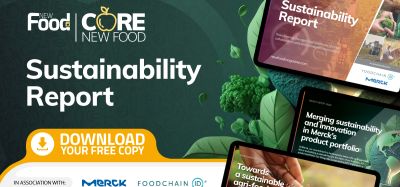Supermarkets and seafood industry call for action
- Like
- Digg
- Del
- Tumblr
- VKontakte
- Buffer
- Love This
- Odnoklassniki
- Meneame
- Blogger
- Amazon
- Yahoo Mail
- Gmail
- AOL
- Newsvine
- HackerNews
- Evernote
- MySpace
- Mail.ru
- Viadeo
- Line
- Comments
- Yummly
- SMS
- Viber
- Telegram
- Subscribe
- Skype
- Facebook Messenger
- Kakao
- LiveJournal
- Yammer
- Edgar
- Fintel
- Mix
- Instapaper
- Copy Link
Posted: 19 March 2018 | Anna Lambert (New Food) | No comments yet
Robust fisheries regulations must be adopted and implemented effectively after leaving the European Union say a coalition of 17 supermarkets, processors and industry groups as the Government prepares new fisheries legislation.


Robust regulation needed
Robust fisheries regulations must be adopted and implemented effectively after leaving the European Union say a coalition of 17 supermarkets, processors and industry groups as the Government prepares new fisheries legislation.
The group also called on UK and devolved Governments to include strong monitoring measures in the new Fisheries Bill to ensure that there is more visibility of what is happening on UK fishing boats. Currently, around only 1 per cent of UK fishing activities are comprehensively monitored at sea, according to a WWF report, Remote Electronic Monitoring – why camera technology is a cost effective and robust solution to improving UK fisheries management.
The UK Government recently reasserted its commitment to eliminating the wasteful practice of discarding dead or dying fish at sea in the 25 Year Environment Plan. The ‘Landing Obligation’ or ‘discard ban’ comes into full effect next January. However, the 17 signatories to the statement say UK Governments can do more to ensure the fishing industry is prepared to properly implement this regulation.
Further efforts are required to achieve effective uptake of currently available technology and behaviour that can improve selectivity, which will allow fishing vessels to avoid species for which they have no or limited quota, says the group. In addition, it believes that improved measures are needed to provide better access to quota for such species: “The alternative is to have vessels stop fishing when they exhaust their quota for so called “choke” species and that is economically unacceptable.”
Last October WWF released a report that revealed UK and devolved governments are not comprehensively monitoring UK fishing activities at sea. It outlined what it says is a far more cost-effective alternative – Remote Electronic Monitoring (REM) with cameras and sensors. REM could be adopted across UK fleets, building not only the confidence of the consumer in the UK fleet but providing vital information that will help improve the management of the fishery, says WWF.
The Seafood Industry Alliance and British Retail Consortium says it will be asking for a meeting with the UK and devolved Fisheries Ministers to discuss how their concerns can be addressed.
Said Peter Andrews of the British Retail Consortium, “The UK seafood industry has the potential to be world leading in both quality and sustainability. However, if it cannot meet the terms of the landing obligation and is unable to monitor what fish are being removed at sea then we will be jeopardising that potential.”







